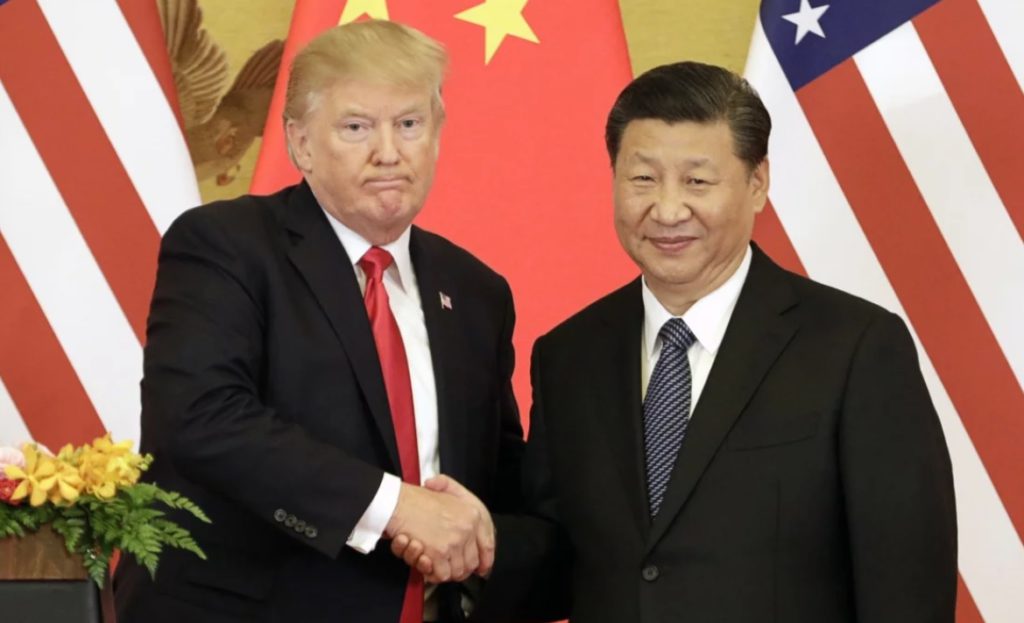[Analytics] China-US trade deal coming soon

The trade war between China and the US means that relations between the two nations will never be the same again, a Communist Party insider says. Photo: Bloomberg
Beijing will take steps to reduce trade imbalance but won’t bow to pressure to make major economic reforms, adviser Xie Maosong says. Trade war means relations between two countries will never be the same again, according to the Communist Party adviser. Josephine Ma specially for the South China Morning Post.
Tensions between China and the United States will ease in the next few months as the two sides reach consensus on a series of trade issues, while Huawei executive Meng Wanzhou could be released as early as April, according to a senior adviser to the Communist Party.
But even if those things come to pass, relations between the two countries will never be the same again, he said.
Speaking at the South China Morning Post’s annual China Conference, which looks at China’s opening up over the past 40 years and what lies ahead for the next 40, Xie Maosong, assistant to the secretary general of the China Institute for Innovation and Development Strategy, said he expected Beijing and Washington to hold further talks within the next three months based on agreements reached in Washington this week.
As well as his role at the institute, which serves as a high-level think tank made up of former officials, diplomats, military generals and businesspeople, Xie is an adjunct professor at the Central Party School, which trains senior party cadres.
On the subject of Meng, Xie told more than 350 government and business leaders in Hong Kong that he was optimistic she would be released in the coming weeks.
“My personal assessment is that there should be some sort of deal in March and Meng Wanzhou will likely be released in April or May,” he said.
Speaking on the sidelines of the conference, Xie said that he was confident of such a result because of the countermeasures China had taken – specifically the detention of two Canadian citizens accused of endangering state security – to put pressure on Canada.
China and US sketch outline of deal to end trade war covering six key areas, sources say
The 46-year-old daughter of Huawei’s founder was detained on December 1 in Canada at the request of the US and is on bail in Vancouver.
In January, US law enforcement officials announced 23 criminal charges against Huawei and Meng – including money laundering, fraud, conspiracy and intellectual property theft.
Xie’s comments came as China’s Vice-Premier Liu He arrived in the United States for top-level trade talks on Thursday and Friday with a team led by US Treasury Secretary Steven Mnuchin and US Trade Representative Robert Lighthizer.
Liu, a special envoy to Chinese President Xi Jinping, will be discussing a possible memorandum of understanding to suspend the trade war between the two countries. Xie said he was confident the two sides would be able to resolve some of their differences but that it would not be all plain sailing.
“The US won’t remove all of its tariffs as it wants to leave some room for negotiation,” he said.
“There is likely to be another round of talks, and by June most of the tariffs on the US$250 billion worth of Chinese products will be lifted.”
Xie said that while China was willing to make concessions on trade – because of its huge trade surplus – it would be less flexible on structural changes.
“That is China’s bottom line,” he said. “The US will get some benefits in trade terms, but it will have to concede on the issue of economic structure.”
He said it was also important for China to “gain buffer time” for its economic growth.
US President Donald Trump was also likely to want to reach a deal by June to aid his re-election campaign later in the year, Xie said.
“Trump will say that it was because of him that the China-US trade problems were resolved.”
Xie said he also expected the US economy to enter a recession cycle this year after a decade of high growth and that the stock market rout late last year was a precursor to the downturn.
While its trade war with the US had exposed many problems in China, it also provided the impetus for deeper reforms over the next 10 or 20 years, he said.
It also meant the relationship between the two countries had been irrevocably altered, he said.
Long-term competition was inevitable and cooperation would be limited, especially if the US was unwilling to relinquish some of its global dominance.
“China’s rise is a nightmare for the US,” Xie said. “It’s a nightmare not because China will become an unpredictable or uncertain factor as the US has claimed, but because the US will lose the hegemony it has enjoyed unreasonably in many areas.
“That is why it’s difficult to be optimistic about China-US relations.
“If the US wants to maintain the superpower status [it has enjoyed] since the second world war, there will be no win-win between the US and any other country.”
China-US relations had “been transformed” and “the US would use many ways to contain China”, he said.
Despite the scale of its conflict with the US, Beijing’s primary concern is more local, Xie said.
“If China can’t achieve high economic growth over the next 10 years it will face many problems, so it can’t let that happen.”
That is why the next 15-20 years will be very important, he said.
“China won’t be in direct competition with the US, but it also won’t back down. It will find a middle path,” he said.